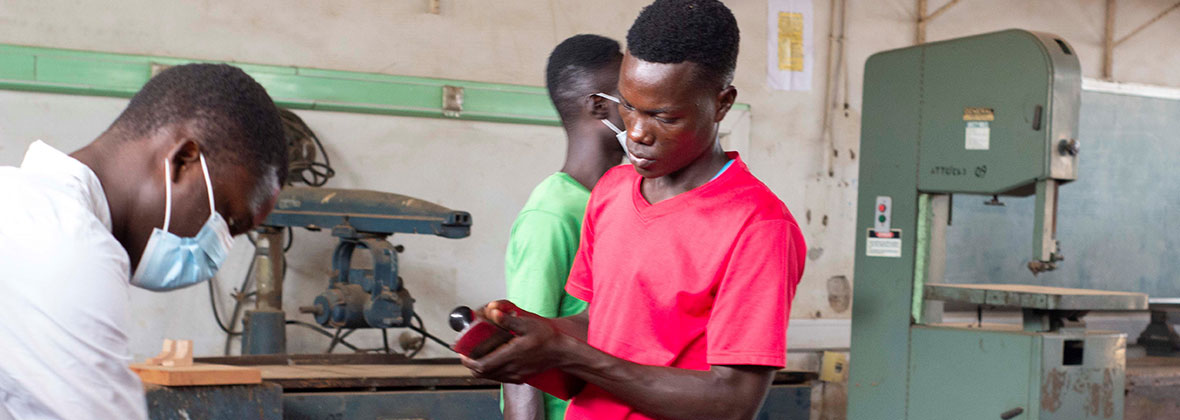The Berufsförderungswerk der Bauindustrie NRW gGmbH is implementing the Partner Africa project together with Ghana TVET Service and Accra Technical Training Centre (ATTC) as part of the special initiative “Decent Work for a Just Transition” of the German Federal Ministry for Economic Cooperation and Development (BMZ). The project is financially supported by the German Federal Ministry for Economic Cooperation and Development (BMZ) through sequa.

What is the Partner Africa Ghana project?
The West African republic of Ghana with its capital Accra has a population of about 30 million. Stable political conditions, democratically legitimized changes of power, its role as an important producer of gold, cocoa and timber, and as Africa’s youngest oil-producing country characterize Ghana’s development. However, the differences in development between the economically strong coastal region and the north of the country are very great, and the population distribution is uneven. With more than 56 % of Ghanaians under the age of 24, Ghana’s population is very young. In 2010, Ghana managed to jump into the group of lower middle-income countries. At the same time, growth is hampered by mismanagement and corruption, so political, economic and social inequalities persist. This particularly affects the distribution of income and wealth within the population. About 85 % of the workforce is employed in the informal sector, where financial and consulting services are hard to come by and hardly affordable. Many people do not have qualified vocational training, which makes the prospect of employment difficult and leads to migration. The negative effects of the Covid 19 pandemic are smaller than expected. The economy lacks well-trained skilled workers in many sectors. The vocational training system does not provide enough employment-oriented training, and vocational training suffers from a low reputation. The predominant form of vocational education is traditional apprenticeship training in the informal economy. Challenges for vocational training in Ghana include the fact that trainers and teachers are not sufficiently qualified, infrastructure, teaching materials and equipment at vocational training institutions are inadequate, and cooperation between state vocational training providers and private actors is very low in many economic sectors. Companies complain about the low quality of training and low relevance of the skills taught.
Main objective of the project
This is the starting point for the PartnerAfrica project (PA project), which is intended to help promote business-oriented training and continuing education in the Ghanaian construction sector and thus strengthen small and medium-sized enterprises, promote jobs in the construction sector and increase the employability of local skilled workers. The planned PA project is to start in the Greater Accra region as a pilot project and be extended to other regions, e.g. Ashanti and Central Province, as the project progresses. The project activities are also to be implemented with a focus on training and promoting the employment of women, who so far account for only about 2.5% of the workforce in the construction sector.

